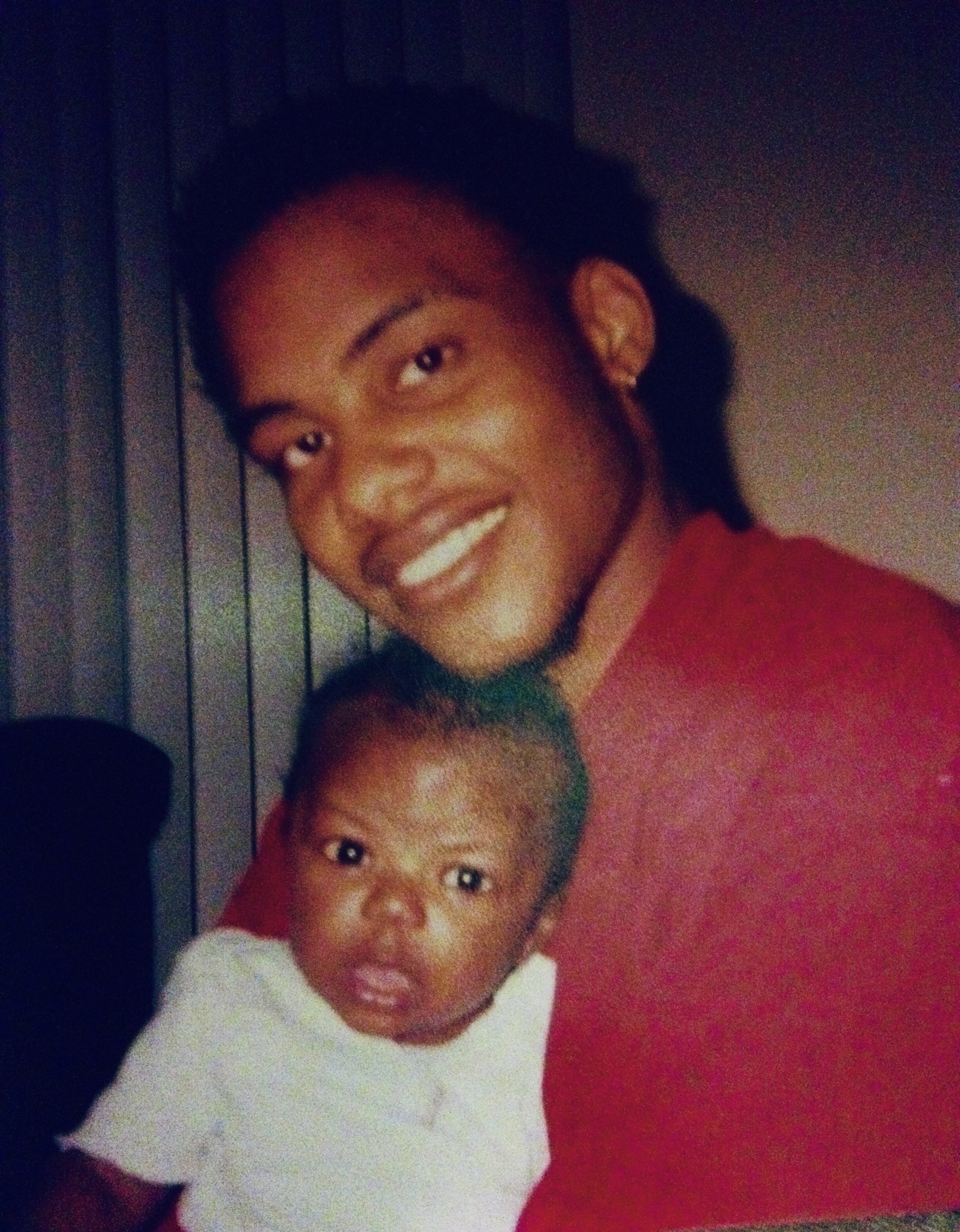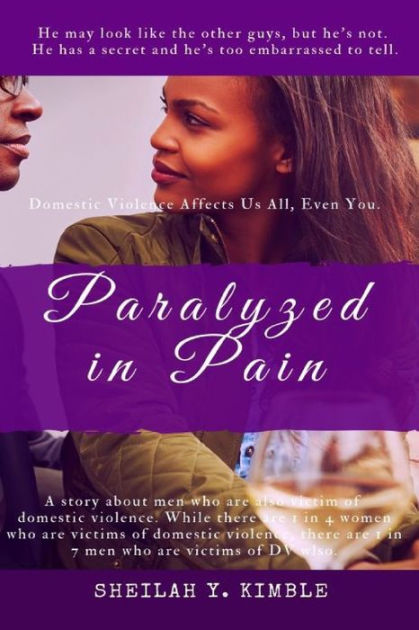
Book Author Sheilah Kimble Sheds Light on Her Son and Male Victims of Intimate Partner Violence in "Paralyzed in Pain"
Teachable Moment: The Color Purple opens up a crucial dialogue about intimate partner violence in which both men and women are victims or perpetrators of abuse.
LOS ANGELES, CA, UNITED STATES, January 8, 2024 /EINPresswire.com/ -- Los Angeles-based book author Sheilah Y. Kimble, MPA unveils a powerful and heartbreaking true story in her latest book, "Paralyzed in Pain." Drawing parallels to the 2023 musical adaptation of Alice Walker's "The Color Purple," Kimble sheds light on the silent suffering experienced by men facing domestic violence, who are frequently marginalized in discussions about Intimate Partner Violence (IPV). According to the Centers for Disease Control and Prevention, approximately 1 in 10 men from 18 and older in the U.S. experiences IPV, a serious public health problem that is voiceless and demands attention.
IPV caused a devastating impact on the Kimble family. "Sharing my story about my son has been part of my healing which will inspire others to never give up and never underestimate the power of what God can do for you," said Kimble, a victim, now a survivor of domestic violence. "I couldn't save my son, but my hope is that my book will help to save someone else's son."
As a group facilitator for batterers' intervention programs and a survivor, Kimble says, "My experience has equipped me to guide batterers to recognize how their abusive behaviors traumatize victims. I promote nonviolence, victim safety, and teach coping skills that can be implemented daily to help manage their anger." Kimble provides batterers with the tools that will help them to take accountability for their actions to prevent repeated behaviors. The program also teaches batterers how to have empathy for their victims.
In 2011, Kimble faced an unimaginable tragedy when she lost her eldest son, who lost his life at the age of 22, leaving behind his two young children. The heartbreaking reality is that he, like his mother, had become trauma-bonded, becoming a teen victim of domestic violence, which continued into his adulthood, an aspect that may have gone unnoticed or unaddressed. Kimble acknowledges that the challenge lies not only in recognizing abuse but also in equipping individuals, beginning with our youth, with the tools necessary to protect themselves from further violence.
In this emotionally charged memoir, Kimble courageously delves into the experiences her son faced as a victim of domestic violence, exposing IPV. The story draws poignant similarities to the characters Celie, Harpo, and Sophia in "The Color Purple," highlighting the pervasive nature of abuse and its impact on individuals and a generation. This acclaimed movie and Kimble's book bring to light the universality of abuse, transcending gender and societal expectations. Traditional and social norms have internalized the beliefs that men who allow themselves to be abused are weak because real men do not get abused. "Men are taught at a young age that they are to suppress their emotions and never express their weaknesses, thereby avoiding vulnerability," said Kimble.
One of the significant themes that emerge from "The Color Purple" is the exploration of abuse, particularly IPV, and its profound impact on women's lives. "The backstory of "The Color Purple" demonstrates where characters such as Harpo, the husband of Sophia, was verbally, physically, and emotionally abused by his aggressive wife. Harpo, on the other hand, learns his abusive behaviors from his father, Albert, aka Mister, about how to disrespect women; Celie experienced her abusive life at the hands of her stepfather Alphonso aka Pa, causing her to become trauma-bonded at the hands of Mister, her husband," she said.
"Being trauma-bonded is when an individual forms a deep emotional attachment to an individual that causes them harm. It is also an unhealthy form of attachment that can significantly impact one’s relationship. "Paralyzed in Pain" unveils the parallel struggles of my son navigating the complex and painful world of domestic violence. My book is a stark reminder that abuse knows no gender boundaries and brings awareness to the silent suffering that is experienced by male victims." CDC’s National Intimate Partner and Sexual Violence Survey reports that more than 61 million women and 53 million men have experienced IPV in their lifetime.
Her compelling narrative brings to light the often-neglected experiences of male victims of IPV. Kimble's raw and real storytelling can jumpstart readers to talk about domestic violence, fostering awareness and understanding. She explores the nuances of domestic violence, revealing how her son, like many male victims, may not have recognized the signs or known how to protect themselves from further harm.
This poignant memoir not only serves as a tribute to the life of Kimble's son but also as a catalyst for change, encouraging open dialogue and support. "Paralyzed In Pain" is a public cry to urge society to confront IPV and the public health crisis of domestic violence and work towards a future where no one suffers or dies.
"It is everyone's responsibility to speak out against it," said Kimble. "My book breaks the silence, serves as a call to action, and urging society to recognize that abuse or abusers can come in any gender, culture, generation, and age. We need to pay attention to the cues of IPV affecting our family and friends." Kimble is penning screenplays to address IPV globally.
In 2012, Kimble founded the Arthur Lee Duncantell II Foundation, a 501(c)3 nonprofit organization dedicated to empowering domestic violence survivors. If you or a loved one are a victim of domestic violence, contact the National Domestic Violence Hotline at 1-800-799-7233 or text START to 88788 for confidential assistance from trained advocates.
To book Kimble for interviews, book signings, and speaking engagements about IPV and its impact on male victims and their families, contact Marie Lemelle at 213-276-7827 or marielemelle@platinumstarpr.com.
About Sheilah Kimble:
Sheilah Kimble, a domestic violence survivor, is an acclaimed author and advocate committed to raising awareness about domestic violence, with a focus on male victims. Her memoir, "Paralyzed in Pain," chronicles her personal journey through tragedy and loss, shedding light on the often-overlooked issue of intimate partner violence affecting men. Sheilah uses her story as a catalyst for change, pushing for in-depth research on male IPV survivors, and advocating for public policy for all domestic violence survivors. Learn more at www.theennovative1.com.
Marie Y. Lemelle, MBA
Platinum Star Public Relations
+1 213-276-7827
email us here
Visit us on social media:
Facebook
Twitter
LinkedIn
Instagram
Other
What is Intimate Partner Violence?
EIN Presswire does not exercise editorial control over third-party content provided, uploaded, published, or distributed by users of EIN Presswire. We are a distributor, not a publisher, of 3rd party content. Such content may contain the views, opinions, statements, offers, and other material of the respective users, suppliers, participants, or authors.




